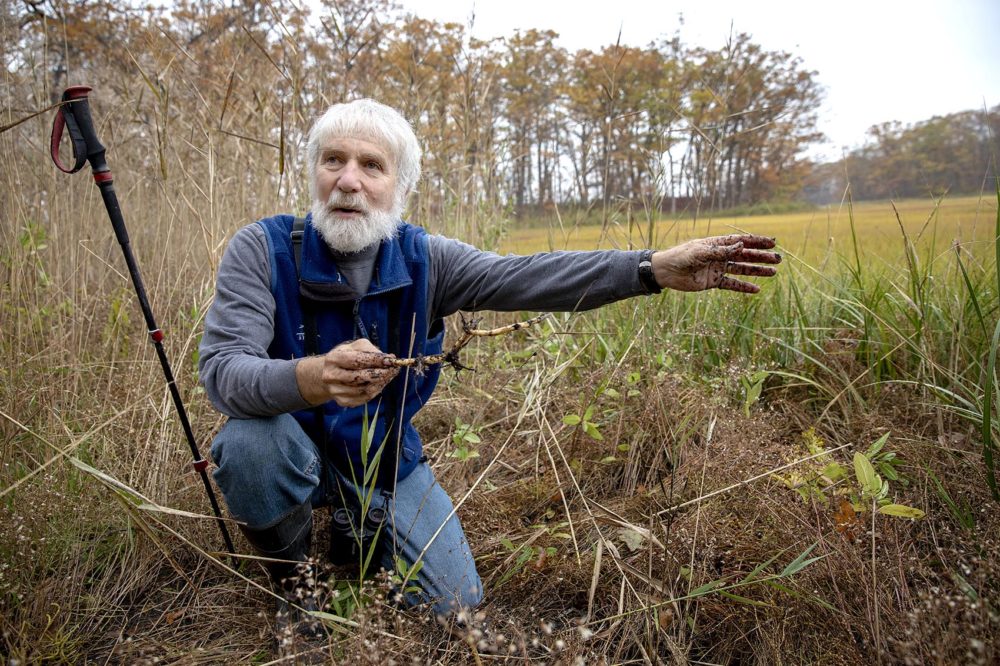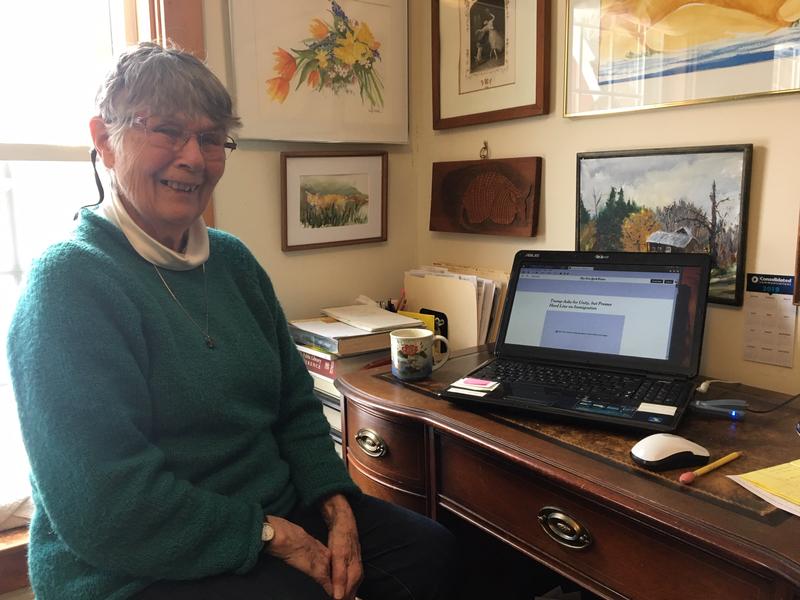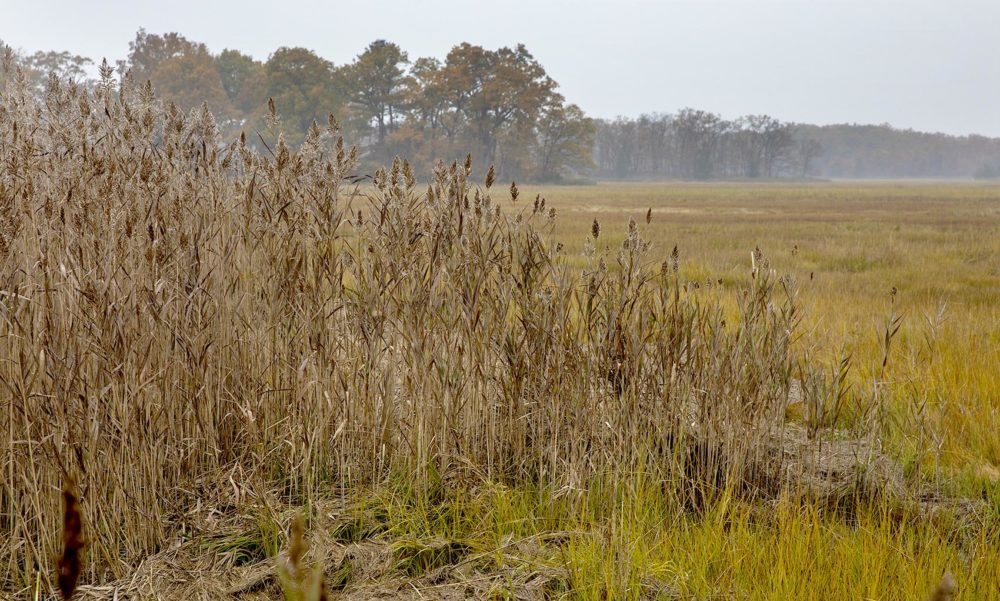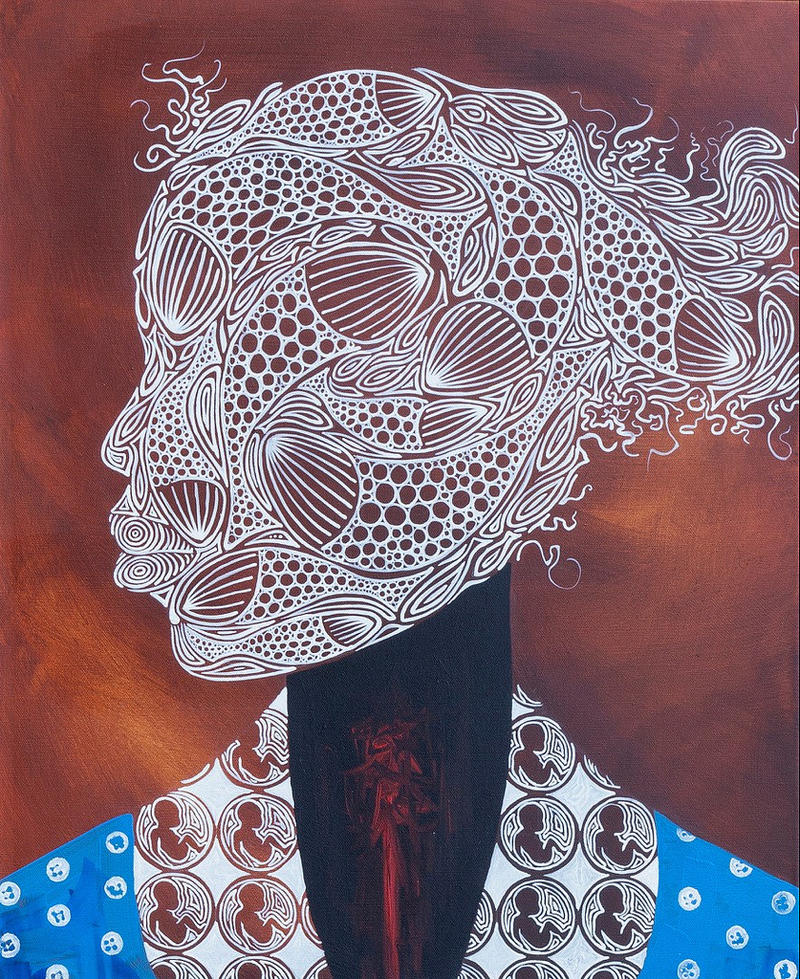Episode 143: Invasive Plants and Climate Change; Limited Broadband Access
This week on NEXT:
We’ll explore broadband access around New England.
Plus, what role should invasive species play in combating climate change?
And, we’ll travel to Maine and Martha’s Vineyard for discussions about race and racism.
It’s NEXT.
Broadband Access Around New England
Nobody’s going to argue that we need clean drinking water, a way to deal with waste, electricity and some way to heat your home. Getting those necessities can still be a struggle, but they’re universally seen as building blocks for a functioning society. So, what about reliable, high-speed internet service?
Almost all businesses need it. It’s become increasingly important for medical care, and what about students who need it to do their homework? It drives our global and regional economy, but as the need for it grows, the lack of access to broadband internet is increasingly becoming a problem.
The Federal Communications Commission issued the “2018 Broadband Deployment Report” in February of 2018. In it, the commission detailed the percentage of urban and rural areas in each state with access to broadband, which they define as 25 mbps download and 3 mbps upload speeds. The biggest broadband gap in New England is in the rural areas of northern states. In Maine, nearly all urban residents have access to broadband, compared with only 85.7 percent of rural residents. And in Vermont? More than 98 percent of urban areas have access, but that’s less than 80 percent in rural areas, which make up most of the state.
VPR’s John Dillon takes a look at the challenges – and the renewed efforts – to bring broadband to Vermont’s under-served areas, especially the Northeast Kingdom, the rural corner of the state, bordered by the Connecticut River and the Canadian border.
But as rural communities get broadband access, there are questions about who should provide it. Recently, the small town of Charlemont in the northwest corner of Massachusetts made an interesting choice when it came to building a broadband network for the town. The town does not have very good broadband access. And recently Comcast offered to build the town a network. But at a special town meeting in December of 2018, the town’s residents decided against it, instead opting to build their own broadband network. We called up Trevor Mackie, who’s on the town’s Broadband Committee, to learn more. You can read more about the town of Charlemont’s decision here.
While getting broadband access to rural areas is a big concern, that doesn’t always mean that urban areas have complete access. Many city residents feel left out of the conversation – with slow access, high cost and no competition from multiple carriers. These problems are felt most acutely in low income and minority communities. We invited in Elin Katz, Consumer Counsel for the State of Connecticut and Janice Flemming, CEO of Strategic Outreach Services and a community organizer in Hartford, to learn more about the urban digital divide.
Can This Invasive Species Help Curb Climate Change?
“Phragmites” the tall, bushy-topped reeds, are the number one enemy for many ecologists. Environmental groups spend big money trying to keep it from taking over wetlands. But emerging research shows that “phragmites” might have a shot at redemption, and it concerns the plant’s complicated role in climate change.
WBUR’s Barbara Moran has the full story.
Measuring the Role that Trees Play in Storing Carbon
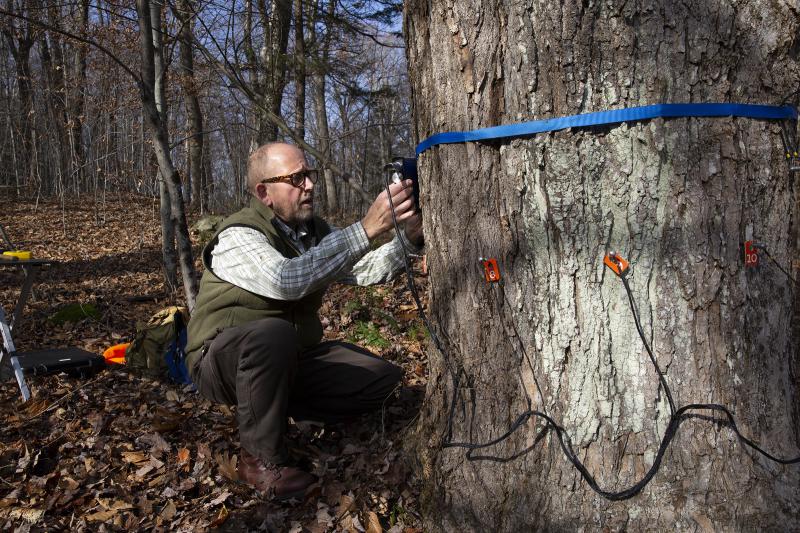
Forest pathologist Bob Marra demonstrates equipment used to internally scan trees. “If we’re going to look to forests as a way to sequester carbon, we should develop much more accurate estimates of how much carbon is actually sequestered,” Marra said. Photo by Patrick Skahill for Connecticut Public Radio
When trees breathe they suck up carbon dioxide, release oxygen, and store that leftover carbon in their trunks. But as Connecticut Public Radio’s Patrick Skahill reports, how scientists determine the amount of carbon stored in a tree is a question open for debate.
Why Is Maine So White?
It’s a story we’ve been talking about for a while on NEXT. Almost 95 percent of people in Maine and Vermont identify as white according to the most recent census data. That number’s about 94 percent in New Hampshire.
The reasons why are complicated. So Maine Public Radio’s Willis Ryder Arnold went looking for an explanation.
Discussing Race, Racism and Policing on Martha’s Vineyard
Another place in our region that’s both a big tourist destination, and overwhelmingly white, is the Massachusetts island of Martha’s Vineyard. Fewer than 800 of the island’s 17,000 residents are African American.
But the island does have a local chapter of the NAACP, which calls itself “one of the most diverse racially and ethnically.”
Reporter James Sneed went there to talk to the chapter’s president.
This story was adapted from James’ piece for the Transom Story Workshop.
Photo at the top of the page: Robert Buchsbaum holds a phragmites root at the edge of the marsh at Mass. Audubon’s Rough Meadows Wildlife Sanctuary in Rowley. Photo by Robin Lubbock for WBUR
New England Music Featured on NEXT
About NEXT
NEXT is produced at Connecticut Public Radio
Host: John Dankosky
Producer: Lily Tyson
Digital Producer: Carlos Mejia
Senior Director: Catie Talarski
Contributors to this episode: John Dillon, Barbara Moran, Patrick Skahill, Willis Ryder Arnold
Music: Todd Merrell, “New England” by Goodnight Blue Moon, “I Wanna Know (Part 1)” by Phat A$stronaut, “100 Year Storm” by Adam Ezra Group
—
New to NEXT? You can find every episode or one you missed within our archives.
We need your feedback! Send critiques, suggestions, questions, and ideas to next@ctpublic.org. Help us spread the word! If you like what you hear, rate and review us on iTunes.

